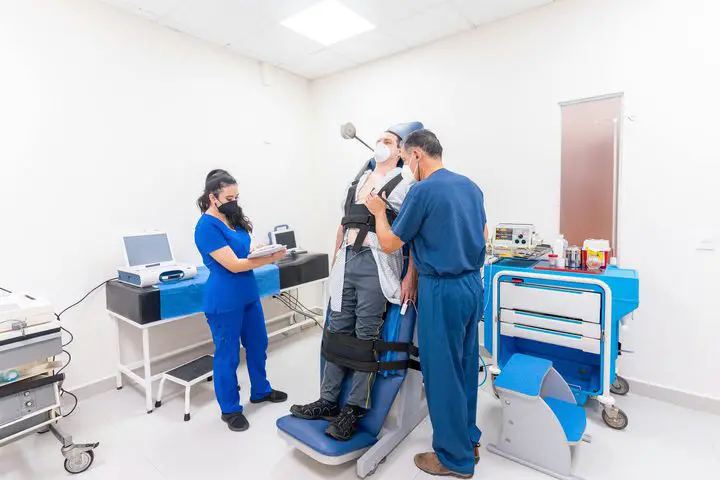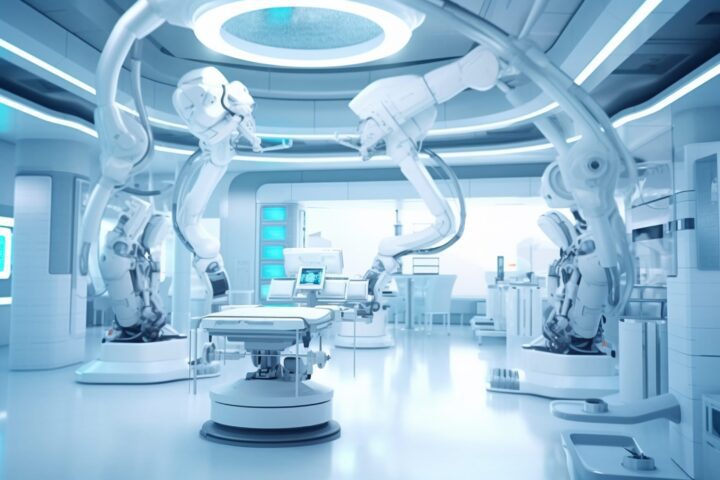It is the buzzword that has swept every industry, right from finance and healthcare to the undeniability in cardiology, i.e., the study and treatment of heart disorders. This article digs deeper to find out what exactly AI can do to make the heart healthier, the technologies supporting this, and what it really means for the future of cardiology. Each of these will be explained in detail later, using simple words and short sentences with relaxed language.
Heart Health: Importance
The health of the heart is of the essence because the heart acts like an engine to our body; it runs other systems with its performance. Today, the number one cause of death across the world is made up of cardiovascular diseases that include heart attacks and strokes. The World Health Organization estimates that CVDs account for almost 17.9 million deaths annually, or about 32% of all global deaths.
These are statistics, so keeping the heart healthy is very important. But how do we go about it? This is where AI comes in.


What is AI? Simple Explanation
Before going deeply into its place in cardiology, let me briefly explain what AI is. Artificial intelligence is the developed capability for a machine or computer system to simulate the thinking and intelligent behavior of a human—in other words, it can learn from experience through pattern recognition and then use that knowledge to make decisions, even predictions. Think of AI as an ultra-smart assistant in helping humans make better choices based on information.
Why AI is Important in Cardiology
Now that we understand what AI is, let us now further our understanding as to why it is important in cardiology. The human heart is an organ that is somewhat complicated. Diagnosis or treatment of cardiac conditions mostly needs to be done by considering a huge amount of data, which might include patient history, image findings, blood studies, and so on. Doctors, though skilled, cannot always avoid missing certain subtle details and patterns. On the contrary, AI is far better at processing big chunks of information and occasionally isolates patterns somewhat invisible to analytics through a human perspective.
AI Technologies in Cardiology
A host of AI technologies find their application in cardiology. Each technology has its use and merit relevantly. Let’s check them out one by one.
1. Machine Learning
It is that part of AI through which computers gain, by examples from experience, in data. This could provide an insight, in cardiology, into voluminous data from various sources like patient records, medical images, or wearable devices, along with insights into the doctors’ decisions.
For example, ML can scan the previous records of heart disease patients and find out newer ones. Hence, the doctors can take some precautionary measures by prescribing certain medicines or advising on specific lifestyle changes.
2. Deep Learning
Deep learning basically evolves from machine learning. In essence, it’s actually a class of neural networks contrived simply to perform like the workings of the human brain. The deep learning model will effectively deal with the analysis of the medical images, such as X-rays, MRIs, and CT scans.
Deep learning in cardiology can depict abnormalities that the human eye cannot see in the images of the heart. It is useful for finding small blockages within the arteries that cause heart attacks.
3. Natural Language Processing
Other areas in AI include natural language processing. These deal with the ability to understand and process human language. Applications can be done in cardiology by analyzing research papers and other forms of textual data about patients.
For instance, NLP can read a patient’s history to identify risk factors regarding heart diseases. It can study research papers concerning the latest treatments and suggestions about certain conditions.


AI for Improving Heart Health
Having discussed the technologies involved, let’s now focus on how AI is improving heart health. The contribution made by AI in a number of key areas stands immense.
1. Early Detection of Heart Disease
It may sound minute, but in cardiology, the element of early detection is very important. The earlier a problem can be located, the easier the treatment. Brilliantly in this respect, AI churns through the large volume of data while hunting for the first signs of heart disease.
For instance, AI can read an electrocardiogram for any abnormalities that may show early evidence of heart conditions. In that way, doctors will have a better opportunity to catch and act on the developing condition before things get worse.
2. Customized Treatment Programs
Each patient is different; what will do for A might not be effective with B. The system takes on board a patient’s history, the life one leads, and genes, and prepares an individual program to treat him or her effectively.
For example, it shows which medicine can work wonders in a particular case, keeping the individualistic traits of that individual. Thus, all trial-and-hit medicine prescription tactics boost the success rate on their treatment account as well.
3. The outcome will be a prediction.
It also predicts the outcome of the treatment. It provides data on what might work for a particular patient, having treated similar cases in the past, thereby allowing the doctor to take up the best course of action with more confidence.
It would go through all sorts of similar cases of a patient who is going to undergo surgery and will tell the success rate of that particular surgery. This would not only aid decision-making for patients but will also help doctors in making more accurate decisions.


Future of AI in Cardiology
AI in cardiology has just entered the initial phase and holds great potential. Since this branch of AI is growing day by day, the future for heart health too is growing.
1. AI-powered robotics
That’s where all the excitement is: AI-powered robotics. Such robots can assist surgeons in minute heart surgeries that even human hands could hardly perform. They could be so fine, with likely fewer complications, hence benefiting patients in outcomes.
2. Real-Time Data Analysis
In the near future, AI data will analyze such findings in real-time that the doctor could act upon in surgeries and all such processes. In other words, for example, conditions during the operation may have recommendations over the course of actions just in the span of only a few seconds if things are not right in the body of the patient.
3. Increased Patient Participation
AI can also be used in improving adherence to health advice and follow-ups by the patients. These include AI reminders for patients who have to take their medicine, exercise, or come in for a follow-up visit. This will make it easy for them to keep up with the set plans and improve the general condition of the heart.


Challenges and Ethical Considerations
Besides that, a lot of other challenges and questions are arising concerning ethics and the usage of AI. Some of those issues are outlined below.
1. Data Privacy
It is known that AI functions on huge bulks of data, meaning thereby a leakage in the privacy of data. What cautions may it take to make patient data confidential and safe? For integrity protection about the data of the patient, strict regulations or guards have to be in practice.
2. Bias in AI
AI is only as good as the material on which it gets trained, and all those biases make the AI decision one-sided. In this way, the patients are then at the mercy of these considerations: race, gender, and socio-economic background being among them. It is diversity in application that is relevant for carrying out AI system training. Essentially too, this fact should be duly confirmed.
3. Human Oversight
However, it will be quite unwise to overlook the fact that AI, while helpful in making a decision, is immaculate. There is thus the need for a human overview of what AI has arrived at as proof of its good intention towards the patient. Doctors must look at AI as a support system for decision-making and not replacements for learned judgment.
Artificial Intelligence: Future in Cardiology
In conclusion, AI is changing face-to-face in cardiology—from early detection to offering personalized treatment. This hence helps the doctor in treating his or her patients effectively. More improvements would be expected over a period of time since heart health was tuned with the advancements.



































Great line up. We will be linking to this great article on our site. Keep up the good writing.